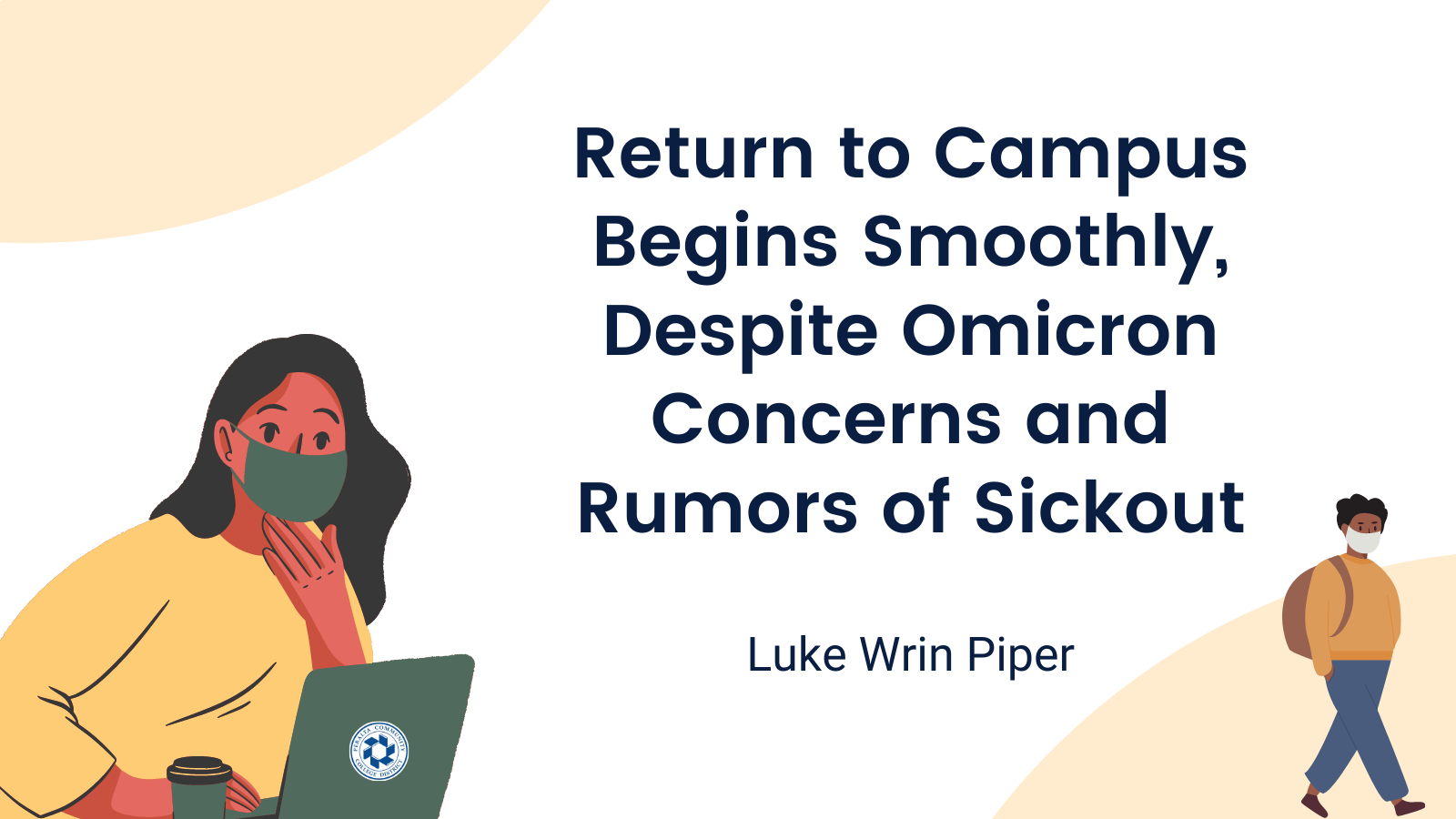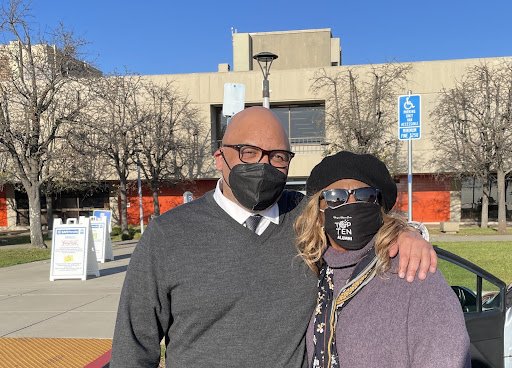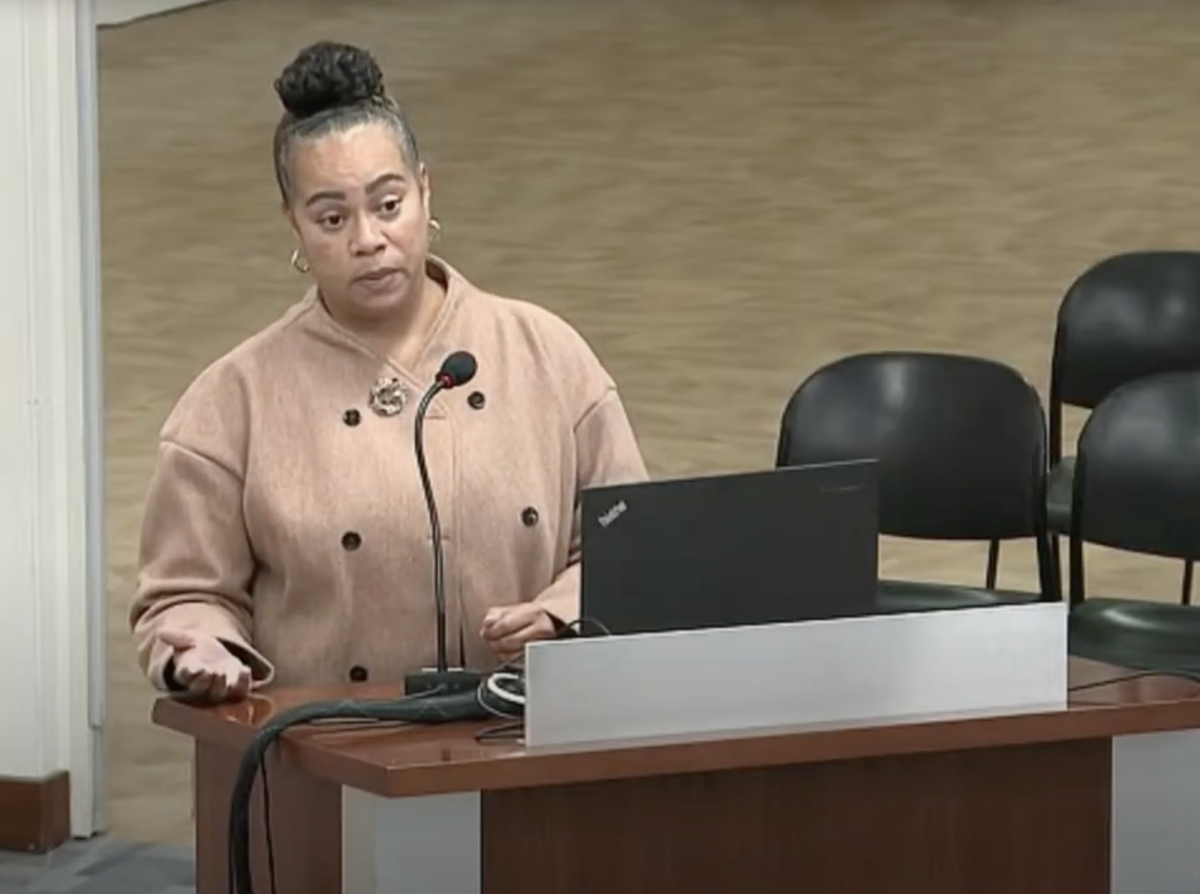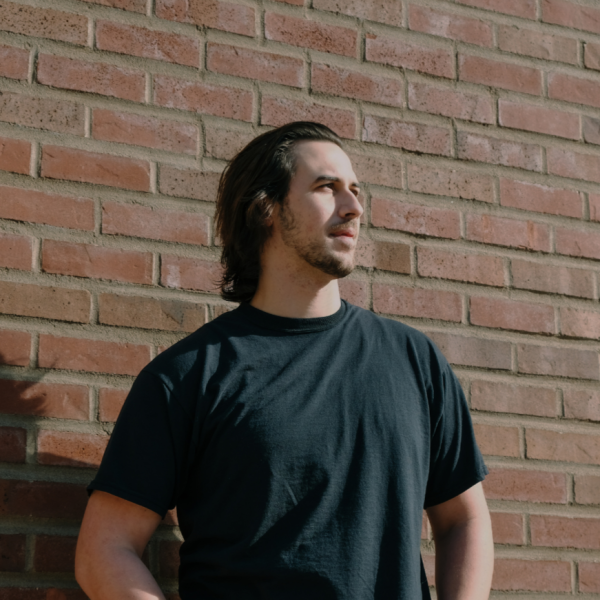
With the Omicron surge still in full effect and daily new cases in Alameda County being reported in the tens of thousands for the first time ever, a movement within the Peralta Community College District has formed to resist the return to in-person instruction for the Spring 2022 semester.
On January 21, a faculty-led Emergency Town Hall called for faculty, classified staff and students to rally under the slogan of “the safety of our community is up to us.” The town hall saw up to 170 attendees and spilled well over its initial one-hour time slot, a large turnout by Peralta standards.
Marc Lispi, part-time philosophy instructor and one of the leaders of the movement to resist the return-to-campus, has been an outspoken and enthusiastic front-person for those concerned about resuming in-person work. Lispi is hoping the District changes its mind, but if not, he says they are ready to “go all the way”.
During another meeting on the evening of January 23, which also went over its allotted time but only netted up to 60 attendees, Lispi continued to encourage members of the community to speak up about their concerns, sharing a Google Doc resource page titled “A Safe Peralta” for the evolving effort.
“If this was just unique to Peralta, that’d be one thing, but we’re seeing this across the country in schools and workplaces. We saw with the CDC [Centers for Disease Control] when they reduced the isolation period in half and the director said the reason was to get people to work faster, even though they’ll still be symptomatic,” Lispi said.
Current CDC guidelines Lispi referred to state that isolation can end five days after the onset of symptoms and 24 hours after any fever ends.
“We’re put in this position where now it’s the health of our community, of ourselves, of our family that is being put at risk, and we have to stand up for it, defend it, because no one else is gonna do it for us.”
Prior to the town hall, tenured psychology professor Kimberly King received a letter from Chancellor Jannett Jackson accusing her of organizing a sickout, demanding her to cease and desist from doing so and warning that any such action would be in violation of union contracts and could be subject to discipline.
The letter cited a myriad of improvements that have been made to the numerous learning spaces throughout the District, including the strict vaccination policy for those attending in-person classes, free testing on the campuses and the installation of “over 900 new air circulation devices and filters”.
While the District said KN95 masks will be supplied to faculty and classified staff, there was some confusion among attendees of the Emergency Town Hall over who would be distributing the masks, where to get them or whether or not the District had them in the first place.
The current plan is for students to be provided with surgical masks at check-in tables when they first arrive on campus, at the same place they are required to show their CampusShield COVID Health Assessment badge. Faculty and classified will be provided one KN95 per week, which they are meant to receive from their division deans and managers.
The COVID Prevention Plan that the District first drafted last August lays out the protocols in greater detail, including what will happen if and when someone on campus turns up COVID positive.
King believes she may have been singled out as an instigator due to her history as an organizer at the District as well as the potential misinterpretation of emails sent on District servers.
“I know that the District can read emails, and several people have reached out to me and I’ve responded to them, and I’ve responded in a way to encourage them to speak up and to think about their safety and help them to advocate for themselves,” King said.
If King’s concerns are true, this wouldn’t be the first time the District responded critically to messages shared between faculty members.
“They are trying to divide our unity; they’re threatened by our unity,” King proudly stated during the Emergency Town Hall.
“We shouldn’t have to choose between life and being labeled insubordinate.”
“The students have the same concerns as our faculty do, and so (they) are choosing online modality,” Peralta Federation of Teachers (PFT 1603) President Jennifer Shanoski said. “And informal surveys done by faculty about the start of the semester indicated that many students would have preferred to start the semester remotely, but that wasn’t being allowed by the administration.”
“PFT supports the faculty activism, you know, and the faculty activists who are helping to speak up and let their voices be heard and their concerns be known,” Shanoski continued.
According to their contract, faculty must prove that they are working in an unsafe environment before the administration is required to move classes online. As the precautions taken by the Peralta District fall within the current OSHA and CDC guidelines that define a safe working environment, the faculty have a harder road ahead in requesting remote learning options.
Laney math professor Amit Singh, who attended the meeting and teaches at Laney College, Los Positas in Livermore and Ohlone in Fremont, expressed mixed feelings about the return to campus. Los Positas and Ohlone have both moved to online instruction for the time being.
“It’s kind of hard to do online labs and things like that. With those kinds of courses, I feel like we should have more options on that to be in-person or to be online. But I’m okay with coming back. I feel like I’m ready. You know, a lot of my students feel the same way.” As with many faculty, Singh wants the decision to return to campus to be in the hands of faculty and students.
The current faculty contracts were negotiated well before Peralta was concerned with respiratory infections, and therefore the current language states that faculty cannot be forced into online instruction if they want to remain in-person. This was overruled in Spring 2020 when local COVID-19 infections created an unsafe working environment and pushed nearly all instruction online under a statewide emergency.
Concerns over a sickout amongst faculty and staff seems to have subsided for the moment, but that doesn’t mean passions have waned. The January 25 Board of Trustees meeting, the first of the Spring semester, saw faculty, classified staff and students speaking out against what they view as the District’s continued apathy towards their safety. Financial aid and library staff were particularly outspoken about being required to work long hours in small, shared spaces, often without protective barriers between them and the students.
“You need to take consideration, because if you don’t do us right then we can’t do students right. If we don’t have students, who’s going to have a job? That’s my concern,” Ada Clark, who works the front desk of the BCC Financial Aid office, remarked during public comments.
From the District’s perspective, the return to in-person instruction has gone smoothly so far, according to Peralta’s Executive Director for Marketing and Communication Mark Johnson. Aside from a 90-minute loss of internet connection and phone service at Merritt’s student center, the return to campus went off without any “major disruption” that he is aware of.




























